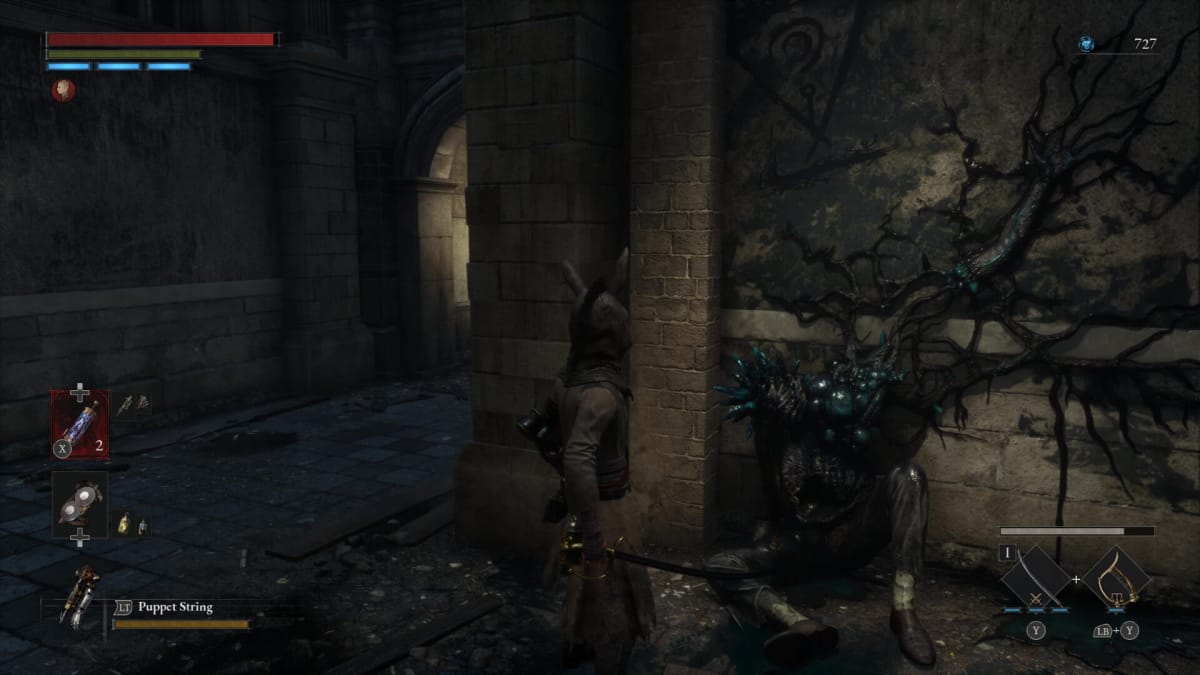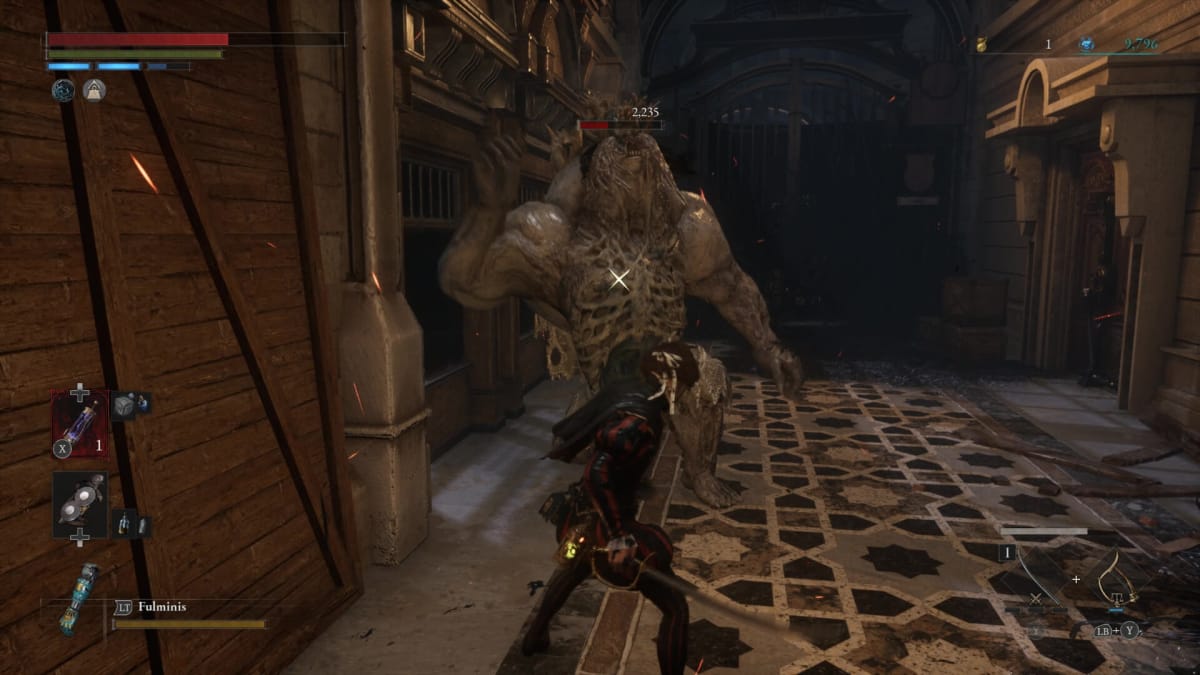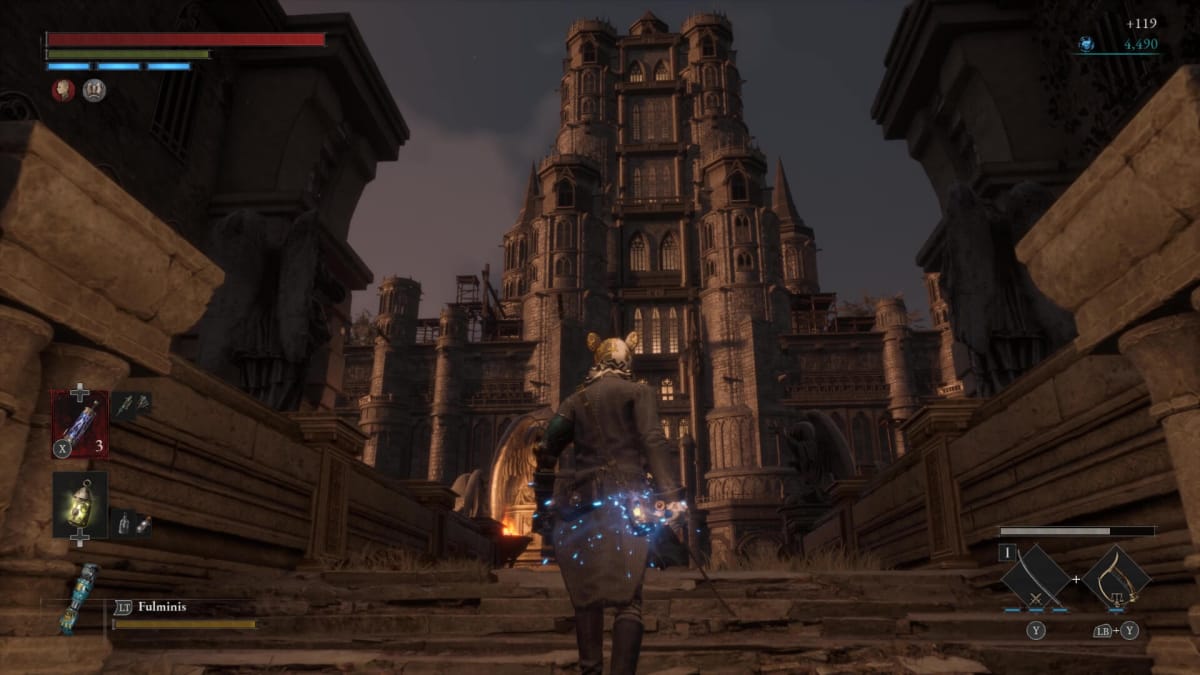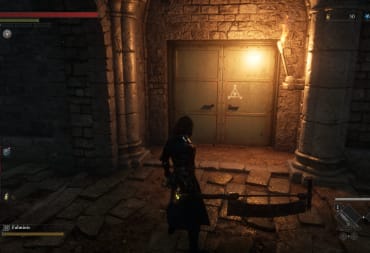I'd like to begin this Lies of P review by asking the following question: what other classic works of literature would make good Soulslikes?
Could you imagine Pride and Prejudice's Elizabeth Bennet literally swatting suitors away with a sword on the end of a chain? What about a downbeat Soulslike set in a hypothetical Dostoevsky extended universe?
Of course, that's a slightly disingenuous thought exercise, because Lies of P isn't so much based on the classic novel The Adventures of Pinocchio as "inspired" by it.
Good thing, too, because I'm not sure Carlo Collodi had Neowiz's moody Belle Epoque hack-and-slash take on Pinocchio's world in mind when he crafted his children's fable about fatherhood and altruism.
Still, Lies of P doesn't have to stand up as a direct Pinocchio adaptation. It does, however, need to wrestle with the following question: will it be just another Souls derivative or can it successfully become a real boy in its own right?
Lies Of P's Story Keeps Getting In Its Own Way

The setup is a fairly standard one for Soulslikes. In the techno wonder-city of Krat, puppets designed to help humanity have gone crazy in an event known as the Puppet Frenzy.
As one of the only puppets who still retains some degree of sanity, you must venture out into the city to find their creator, Geppetto, and discover the truth behind the Frenzy.
Over time, it becomes clear that the Puppet Frenzy isn't the only thing afflicting Krat. Some kind of sinister disease that affects the human population also lurks in the margins.
It's a compelling enough setup, and Lies of P starts strong, drip-feeding information about both the Puppet Frenzy and the so-called Petrification Disease and building some rather nice intrigue.
Unfortunately, Lies of P simply can't stay out of its own way when it comes to storytelling. There's an overreliance on boring, somewhat badly-written text logs, and opportunities for environmental storytelling through Krat's architecture or its inhabitants are mostly missed.
If there's one core problem that rips the heart out of Lies of P's story, though, it's Gemini (pronounced "Jiminy" - see what they did there?), P's lantern-bound companion.
To put it simply, I despised Gemini with every fiber of my being.
Every time he opened his idiot mouth to overexplain some aspect of the plot or "crack wise" (as he no doubt saw it, although I beg to differ), I wanted the character to will himself into the real world through the sheer force of his annoying personality and write himself out of the game.
It's a shame, because Lies of P does have some interesting world-building going for it, and some areas are richly atmospheric; a pipe organ-drenched cathedral and a burning library filled with operatic spiders spring to mind.
In the end, though, between Gemini, poorly-written text logs, and bad character dialogue (of which there is unfortunately also plenty), Lies of P can't quite spin a compelling enough yarn to keep the attention.
By the time its conclusion rolled around, I'd lost interest in who the main villain was, what they wanted, or why I should stop them, and I didn't much care for the fate of Krat, either.
Combat In Lies Of P Is Great

Happily, the combat in Lies of P fares much, much better than the story.
Comparisons to Bloodborne are inevitable; just like From Software's masterpiece, Lies of P is a zippy, fast-paced affair that emphasizes staying in the fight rather than backing out or playing defensively.
Thanks to a ton of weapons and loadout options, Lies of P's combat is meaty and cathartic. Blows land satisfyingly, dodging enemy attacks feels great (in a significant improvement over the initial demo), and moving in for the kill makes you feel like the predatory puppet you truly are.
Across its first half, Lies of P escalates the tension and difficulty of combat expertly, constantly introducing new enemy types with threatening and dangerous abilities to navigate.
One enemy type hurls Decay projectiles at you, for instance, causing damage over time if you allow them to build up, while another creates an aura that causes the Disruption status to build, killing you instantly if the bar fills.
Lies of P usually finds interesting combinations in which to throw these enemies at you as well, meaning you'll never be able to relax during one of the game's linear dungeons.
Sadly, this is another element that Lies of P can't quite sustain across its 25-30-hour runtime.
Although the core combat feels great and there are plenty of enemy types to fight, as the second half of the game dawns, the level of damage sponging ratchets up accordingly.
Many enemies in the back half of Lies of P are egregious damage sponges that take an absolute age to bring down.
I'd ready my absurdly massive greatsword - which, by rights, should rend God himself in twain - and take a huge swing at an enemy, only to laugh in disbelief as the tiniest chip fell pathetically off its health bar, as if it were saying "you're going to have to try a lot harder than that, my puppet friend".
It's testament to the skill with which Lies of P's combat has been crafted that this was never a deal-breaker for my enjoyment, but my time with Lies of P sometimes felt like an endurance test due to just how much damage enemies soaked up in the second half.
You Won't See Much In Lies Of P You Haven't Seen Before

Perhaps it's Soulslike fatigue, but the aforementioned problems meant I started to weary of Lies of P around two-thirds of the way through my time with it.
After a while, I was hit by a nagging sensation that I'd seen all of this before, and done better to boot.
Again, it's impossible not to compare Lies of P to Bloodborne and the Souls series, and that's not just because of the combat; the hallmarks of From Software's series are everywhere here, from big things like game flow all the way through to specific animations and font choices.
Where Bloodborne found a way to distinguish itself through excellent atmospheric storytelling and a focus on cosmic horror, though, Lies of P struggles to break through the noise.
It can't quite find an identity of its own. When it's good, it's often because it's cribbing from a well-established formula, and when it's bad, it feels derivative and tired.
Bosses are a good example of this; they're well-designed, and none of them feel cheap or overtuned (although the aforementioned sponge issue does rear its ugly head in more than a few boss battles).
Early on, bosses showed promise, with terrifying puppets giving way to monstrous horrors as the Petrification Disease began to take center stage in the story.
Sadly, that early promise is squandered, and Lies of P settles into a boring boss rhythm from that point onwards, never breaking out or exercising the kind of creativity that would have seen it truly soar amidst its genre.
Beyond the early hours, bosses are mostly armored knights, generic monstrosities, and Resident Evil-derived malformed pseudo-human horrors without much in the way of surprises.
They're fine, but they didn't terrify me like, say, Ludwig the Accursed or Rykard. Lies of P understands its influences, but it can't match them for grandiosity or elegance.
Lies of P Review | Final Thoughts

If what you want is a Soulslike that adheres faithfully to the template, then Lies of P will be 25-30 hours well spent.
It's got great combat, a raft of cleverly-crafted boss fights, and some decent (if overly linear) levels to explore.
Neowiz's game absolutely is not going to elevate the genre to new heights, and it can't quite find an identity of its own; better alternatives exist, although they all bear From Software's name.
I'm trying to avoid cheap "real boy" gags, but in the end, Lies of P feels like an expertly-crafted puppet simulacrum of a Souls game rather than a living, breathing entity in its own right.
Lies of P was reviewed on PC with a copy provided by the developer over the course of 24 hours of gameplay - all screenshots were taken during the process of review.
Review Summary
Pros
- Great combat
- Well-designed, varied boss battles
- Atmospheric
Cons
- Weak, poorly-written story
- Too many damage sponge enemies
- Very derivative
Have a tip, or want to point out something we missed? Leave a Comment or e-mail us at tips@techraptor.net












